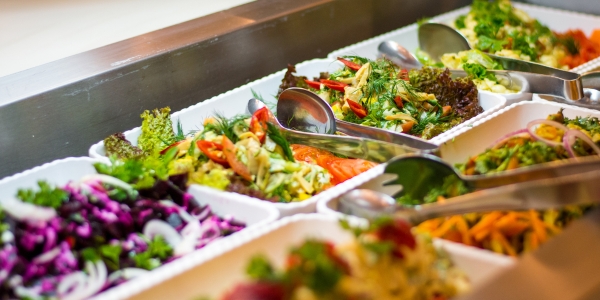
Firstly, in the past 40 years research has continued, public health messages have evolved, and so have our recommendations. If a well-meaning parent is telling you you can or can’t eat certain foods while pregnant, it’s okay to not do what they say. Remember that guidelines are updated as we learn more.
General food safety advice still needs to be followed.
This is basic food safety for all people
Everyone tends to have different levels of caution.
Keep it clean:
- Wash and dry hands before preparing and eating food
- Keep all surface and equipment clean
- Separate raw and cooked food
- Avoid eating food made by someone who is unwell
- Wash raw fruits and vegetables with water
- Never wash chicken
Keep it cold:
- Keep the fridge below 5°C
- Put leftover food that needs to be kept cold in the fridge immediately
- Don’t eat perishable food if it’s been left out for more than two hours
- Defrost and marinate food in the fridge (not at room temperature)
- Shop with a cooler bag in warm weather
- Eat leftovers within a day
Keep it hot:
- Cook foods until they’re steaming hot
- Keep food hot until serving (at least 60°C)
- Reheat leftovers until they’re steaming hot
- Look for clear juices before eating cooked chicken or pork
- Always cook mince and sausages completely
- Cook all marinades containing raw meat juices before serving
Check the label:
- Don’t eat food past the use-by date (different to best-before date)
- Follow storage and cooking instructions
Okay so maybe that seems like common sense, but you might be surprised how long most people leave their leftovers out after dinner before putting them in the fridge.
Now for the not so fun part
These are the foods you are safest avoiding to reduce your risk of foodborne illnesses during pregnancy.
It’s safest to avoid these high risk foods:
- Deli meats: packaged, sliced ready-to-eat, from delicatessen counters
- Soft, semi-soft and surface ripened cheeses: brie, camembert, ricotta, blue and feta
- Pate
- Pre-packaged salads: from the supermarket, buffets and salad bars
- Pre-cut fruit: from the supermarket, cafes and buffets
- Rockmelon: regardless of if bought whole or pre-sliced
- Unpasteurised juices: cold-press or blended, bought at juice bars
- Cold ready-to-eat chicken: whole, sliced and diced pieces
- Chilled seafood: raw, smoked and cooked ready-to-eat seafood
- Raw seed sprouts
- Store-bought sushi
- Raw eggs: runny yolks, uncooked batter, mayonnaise, hollandaise sauce and some desserts
- Uncooked sesame products: seeds, tahini and hummus
- Soft serve ice cream
Food safety FAQs
- Can I eat cooked soft cheese? Yes, but make sure it is pasteurised and cook it until it is steaming hot.
- Can I eat freshly made sushi? It’s still risky unless the rice has been freshly made. Homemade sushi is the safest option (although rather time consuming).
- Can I eat a ham and cheese sandwich? Ideally if you really want to eat ham or other deli meats, they should be cooked until hot. A toasted sandwich is safer than a fresh ham sandwich, but if it’s not very hot could still be risky.
- Can I eat tinned tuna? Yes. Tinned tuna and other tinned fish are safe to eat during pregnancy.
- Can I eat hummus without tahini (sesame)? Yes. Making your own hummus is a safer alternative.
- Why are unpasteurised juices considered a high risk food? They are often made from pre-cut fruit and it is difficult to thoroughly clean equipment. Make your own juice or smoothie at home, or buy a trusted brand from your supermarket.